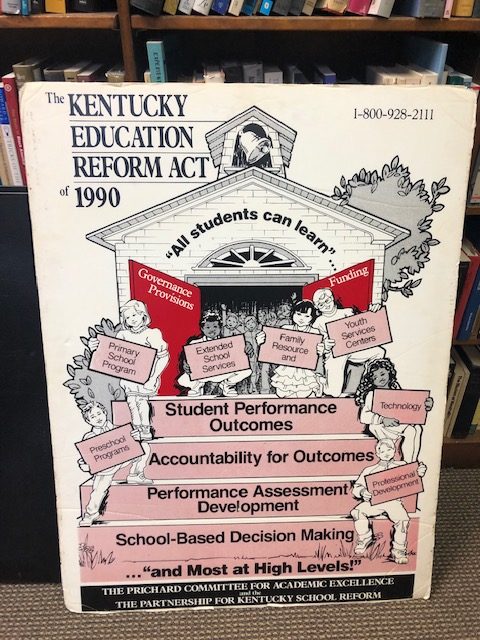I moved to Kentucky in 1990, right as KERA was happening, and was thrilled. You see, I lived in one of the New Jersey school districts that sued for fairer funding and won a landmark ruling, and I knew that 17 years later, those districts were still in court. Then I moved here, where the Rose decision was not yet one year old and state leaders had already adopted a comprehensive approach to reform.
 For me, the legislative action to pass KERA was more dazzling than the judicial one, and the sustained implementation efforts have been more impressive than the law itself. Having seen a legislature defy a court in New Jersey, I understood KERA was possible because of the court order and because Kentucky had elected leaders who wanted to do better by the commonwealth.
For me, the legislative action to pass KERA was more dazzling than the judicial one, and the sustained implementation efforts have been more impressive than the law itself. Having seen a legislature defy a court in New Jersey, I understood KERA was possible because of the court order and because Kentucky had elected leaders who wanted to do better by the commonwealth.
The citizen mobilization that happened before, during and after the litigation also gave me hope major reforms could take root. For the KERA initiatives that are still at work today, that leadership and citizen commitment have indeed proven to be key.
Especially, Kentucky remains committed to robust standards in multiple subjects, and has never settled for the federal basic skills agenda.
Since the reforms of 1990, we have also sustained preschool for low-income children and children identified disabilities, Family Resource and Youth Service Centers to help with challenges that interfere with students’ learning, and major statewide efforts to equip our schools with education technology.
And we have largely held onto important governance reforms, with school councils customizing decisions for individual schools and school boards developing a deeper district-wide focus on learning.
I’m especially pleased by school and district moves in recent years to get back to fuller student performances as ways to learn and show evidence of learning. The KERA goals and our current academic standards ask for more than we can assess with statewide tests.
However, I’m perplexed by where we stand on two other KERA ambitions.
First, we seem to have hit a plateau on academic performance and education attainment (including those targeted by the Prichard Committee’s Top 20 by 2020 effort), and there does not seem to be a sense of urgency about our halted progress.
Second, we wobble endlessly about whether we really want to tackle the inequities in what we deliver for Kentucky students. We pass bold laws and nullify them, adopt strong regulations and repeal them, plan clear public reporting and then decide not to do that reporting after all.
I’m ready for a new generation of commitment to delivering for each and every student, working with the level of strength and focus that wrote and passed our 1990 reforms.
In 2009, Robert F. Sexton of the Prichard Committee told an interviewer, “We’ve spent the last 100 years near the bottom. Let’s spend the next 100 years much closer to the top. We’ve shown we can do this.” KERA gave us an important foundation, and it’s time to build more firmly on that start.





Comments are closed.